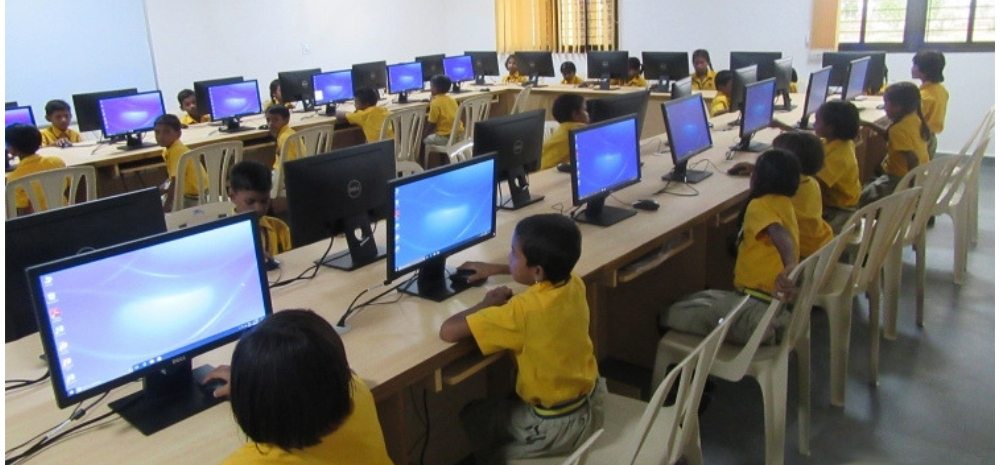Using LMS To Tackle Technological Barriers In Contemporary Indian Classrooms In Tier 2/3/4 Towns
This is a Guest Post by Seethaprasad Mandikel, Founder & CEO for TriByte Technologies
The rural population of India represents 65% of the total population, yet the rural literacy rate remains several points below the urban rate. A massive rural-urban education divide is one of India’s major hurdles while moving towards a skilled workforce and becoming a global economic superpower.

In many ways, COVID-19 aggravated and accelerated a learning and skill development crisis that has long characterised rural education in India. Cutting off students from offline classrooms, also brought into sharp focus a digital divide that keeps learners devoid of opportunities.
While India marked a historical milestone with the recent launch of 5G services in the country, it is concerning that many remote areas hitherto remain disconnected from modern technology, presenting a major challenge to reaching the last mile. According to the Unified District Information System for Education (UDISE) 2020-2021 survey, only around 41.3% of schools have access to computers, and 24.5% had access to the internet in 2020-2021. This hampers not just the everyday delivery of education but also teacher capacity building and peer-to-peer learning.
As the digital mode of instruction became part of the new normal, it also exposed the stark gaps in access to the internet in rural areas and smaller towns. A Learning Management System (LMS) which strongly believes in providing learning solutions to all, its offline features can aid learning in non-urban settings where connectivity is low and unreliable. For universal adoption in such tier 2-3-4 towns, the LMS should support:
- Offline Learning
Offline learning solutions can enable users to continue learning, even during a power outage or while travelling and still keep a track of progress. The content simply needs to be downloaded once. In rural areas and small towns, it is often seen that WiFi or Broadband connections are few and far between. Many learners use mobile data, which tends to get exhausted as the day progresses, leaving students in a lurch until the next day. Technologies such as a drip content update system can allow offline access to relevant material, which can save the hassle of downloading everything in one go.
At the same time, offline-based content delivery via secure SD Cards and pen drives could come in handy for India’s hinterland, where they may be devices but limited capacity to go online at the required speeds.
Another key innovation is that of TriByte’s proprietary solution viz: LearnBox. The LearnBox provides local cloud for devices to connect and view learning material without requiring internet connection to all devices. 50+ users can connect to the LearnBox without the need for any internet. It provides the same user experience with No/Low/Full connectivity. Additionally, it allows users to download content in a secured manner to local devices. All Licensing and usage restriction enforced while usage information synchronized back to cloud for detailed analytics.
- Offline Assessments
It is often observed that internet connections are unstable and fluctuating during the duration of an exam. Solutions such as offline assessments, make students’ lives easier by removing the worry of losing progress because of such issues. These systems can automatically sync the results to the system once the internet is back. In areas with flaky networks, technologies that allow students and teachers to work offline in the same fashion, as they’d do online, can improve learning outcomes and keep them connected.
While solving the issues of poor internet, it’s equally important to ensure the encryption of content for protection of the intellectual properties of the creator, as well as having subscription license controls to protect the commercial interest of the provider as well.

Comments are closed, but trackbacks and pingbacks are open.